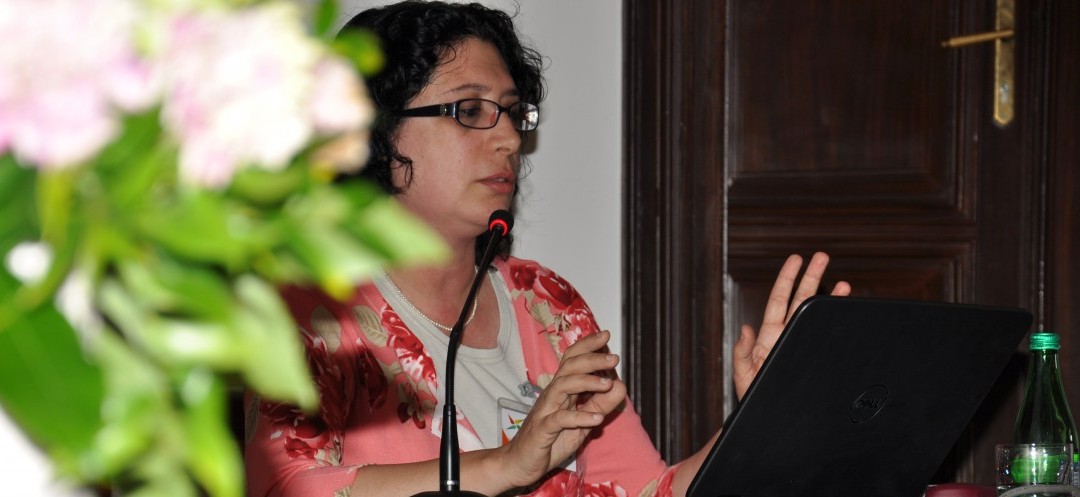
The debate on the role of the media was aimed at some more general consideration of the topic. Are the media shaping the reality – or is that the reality that influences media? Nevertheless, given the topic of the second lecture of the day: “Egyptian revolution - cultural changes”, the abovementioned question reaches a new and concrete dimension.
Following the outcomes of the outgoing events over the Nile, Hebba Sheriff pointed out the main features of the modernisation processes in Egypt. Beginning with the Napoleonic expedition, through – so to speak – liberalisation of the religious discourse and finally the revolutions of the 20th century – mainly Nasser’s coup d'état she drew an image of the continuous ups and downs of the Egyptian modernisation which heydays are usually followed by periods of stagnation. However, the outlined “sinusoid” has complicated a bit recently. This is a result of media. Mainly: audiovisual media, social networks and book industry. By the infrastructural reforms that lead to greater media accessibility, the unconscious authoritarian leaders undermined their power irreversibly. Suddenly, new languages and new discourses emerged tearing down the authorities’ narrative monopoly. Even seemingly simple works of popular culture contributed to the process.
That is how the authoritarian rulers gave the society the tools to overthrow their regime. As highlighted by Hebba Sheriff, the current events in Egypt come out of the changes already present in the society. Hence, she considers the Egyptian revolution more as a natural consequence of the social modernisation or progress than some critical, unexpected breakthrough. However, the future remains unclear. Some of the revolutionary achievements seem to be irreversible. On the other hand, there are also signs of the typical Egyptian post-progress reaction – e.g. shutting down one of the Islamic televisions that, according to Hebba Sheriff, precludes the renovation of the religious debate. Currently the Egyptian society experience a fierce political struggle. Diverse social groups are debating the relation between the old and new, heritage and modernity in the public sphere.
The situation isn’t simple. Kareem Amer, an Egyptian blogger and a former political prisoner argued that the for the time being the Egyptian society isn’t ready for a real democracy as long the free election promote populists who are able to manipulate people’s emotions. As he suggested, the best possible option for Egypt is a secular strong leader supported by the army who would modernise the state and prepare it for a well-functioning democracy in 10 years perspective.
Ziemowit Jóźwik













